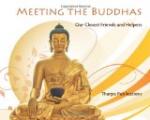Remember the value of little things. A cup of cold water to some toiling worker may mean the difference between comfort and misery. Animals, as well as human beings, suffer very much if they cannot get water. Louisa Alcott tells a pretty story of the efforts of two little girls to give water to the thirsty cattle in a dusty cattle-train.
“Full in the hot sun stood the cars, and every crevice of room between the bars was filled with pathetic noses, sniffing eagerly at the sultry gusts that blew by, with now and then a fresher breath from the pool that lay dimpling before them. How they must have suffered, in sight of water, with the cool dash of the fall tempting them, and not a drop to wet their parched mouths!
“I could not hear what the little girls said, but as they worked away so heartily, their little tanned faces grew lovely to me, in spite of their old hats and their shabby gowns. One pulled off her apron, spread it on the grass, and emptying upon it the berries from her pail, ran to the pool and returned with it dripping, to hold it up to the suffering sheep, who stretched their hot tongues gratefully to meet it, and lapped the precious water with an eagerness which made the little barefoot’s task a hard one.
“But to and fro she ran, never tired, though the small pail was so soon empty. Her friend meanwhile pulled great handfuls of clover and grass for the cows, and having no pail, filled her ‘picking-dish’ with water to throw on the poor dusty noses appealing to her through the bars. I wish I could have told those tender-hearted children how beautiful their compassion made the hot, noisy place, and what a sweet picture I took away with me of those two little sisters of charity.”
In a foreign city many of the shopkeepers provide dishes of water for the thirsty dogs, cats, and birds who may need it. It is a pretty custom and one easily followed.
Here is a clipping from a Western newspaper:—
“A short time ago, as I was crossing Market Street, near Twenty-second, a boy, not over ten years old, who had been walking just before me, ran into the street and picked up a broken glass pitcher. I supposed he intended the pieces as missiles, since the desire to throw something seems instinct in every boy. Consequently, I was very much surprised when he tossed the pieces into a, vacant lot at the corner and walked quietly on. As he passed me, whistling, I said:—
“‘Why did you pick up that pitcher?’
“‘I was afraid it might cut some horse’s foot,’ he replied.
“My next question was a natural one.
“‘Are you a Band of Mercy boy?’
“He smiled as he said:—
“‘Oh, yes; that’s why I did it.’”
The little story may serve to suggest other ways in which children can be of service, not only to the animals and to each other, but to the world of grown-up men and women. Fragments of orange and banana skins make our sidewalks dangerous as well as unsightly; rusty nails and bits of glass may do much harm which the truly helpful child will prevent.




